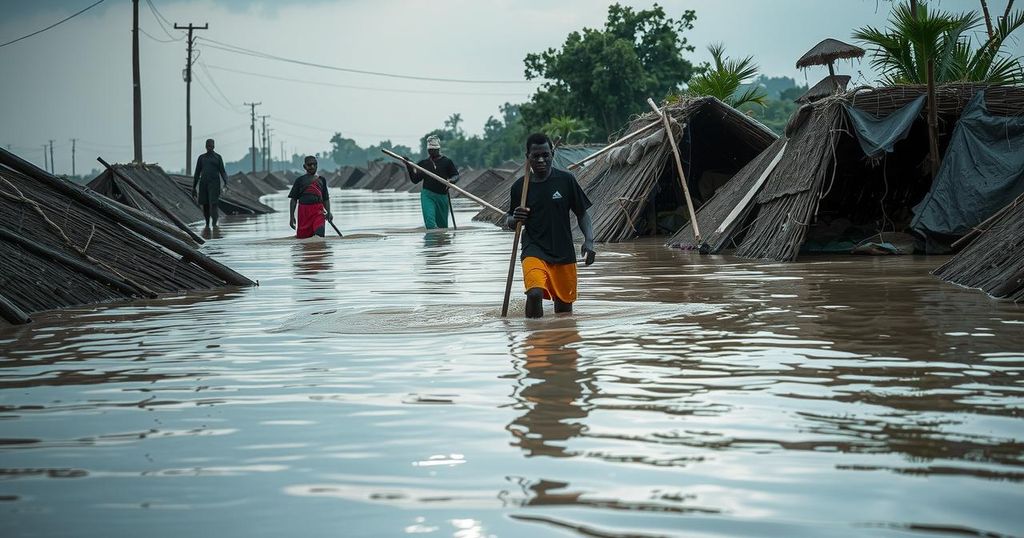Annual Flooding Crisis in South Sudan: A Growing Humanitarian Disaster
Flooding in South Sudan has become a recurring disaster, significantly impacting tens of thousands who are forced to live on limited high ground near the Jonglei Canal. While seasonal flooding has long been a part of local life, recent trends show intensified inundation, resulting in submerged villages, agricultural devastation, and perilous conditions for residents seeking medical aid.
In South Sudan, annual flooding has escalated into a devastating disaster affecting countless lives. Tens of thousands of individuals reside precariously on the limited high grounds along the Jonglei Canal. The traditional seasonal floods, once manageable for the pastoral communities near the Sudd—the continent’s largest wetland—have transformed into an overwhelming deluge, inundating villages, destroying farmland, and leading to significant livestock losses. Community members relay arduous journeys to healthcare facilities through treacherous waters, posing dangers from poisonous snakes.
The flooding crisis in South Sudan has deep historical roots, intertwined with the nation’s geographical and climatic conditions. The Sudd wetland is a crucial ecological zone that traditionally supported local pastoralist lifestyles. However, climate change and ongoing environmental degradation have exacerbated flooding patterns, overshadowing the seasonal rhythms upon which communities relied. Consequently, this catastrophe is not merely a natural occurrence but a multifaceted humanitarian crisis leading to widespread displacement and hardship.
The ongoing flooding in South Sudan presents a dire humanitarian challenge, disrupting lives and threatening the very foundation of agricultural livelihoods. As climate conditions continue to worsen, the need for sustainable interventions and support for affected communities becomes increasingly urgent. Resilience strategies and effective disaster management approaches are critical to mitigating the impacts of such frequent inundations.
Original Source: apnews.com




Post Comment